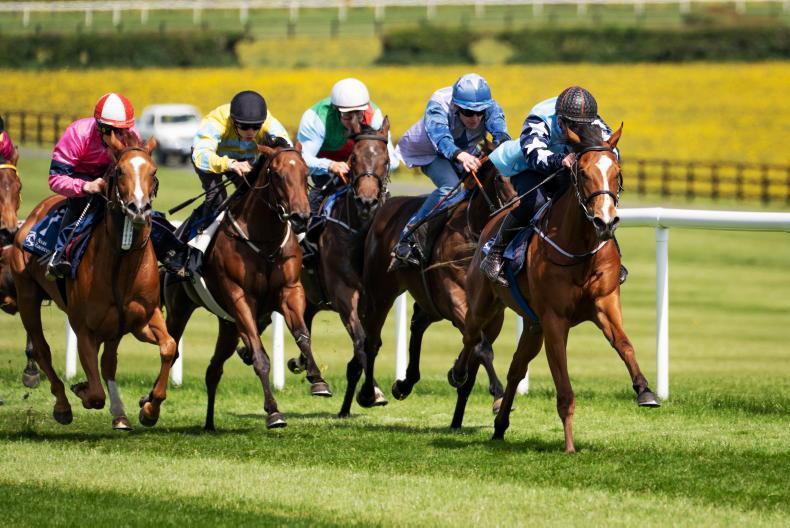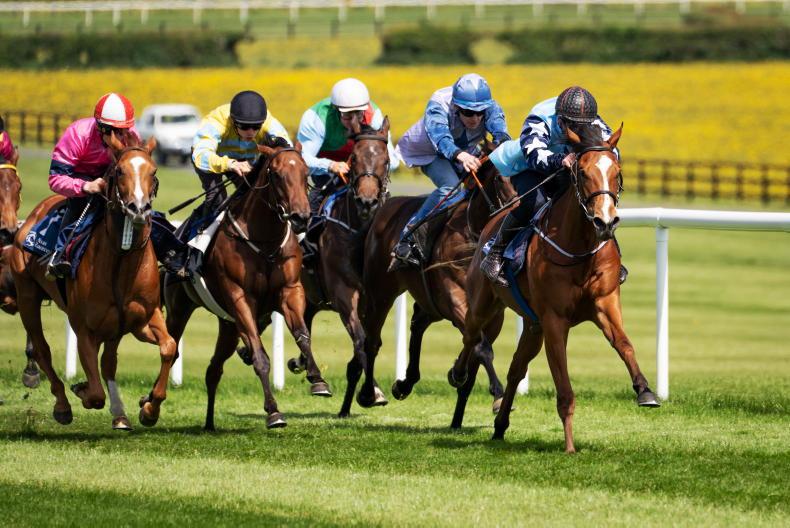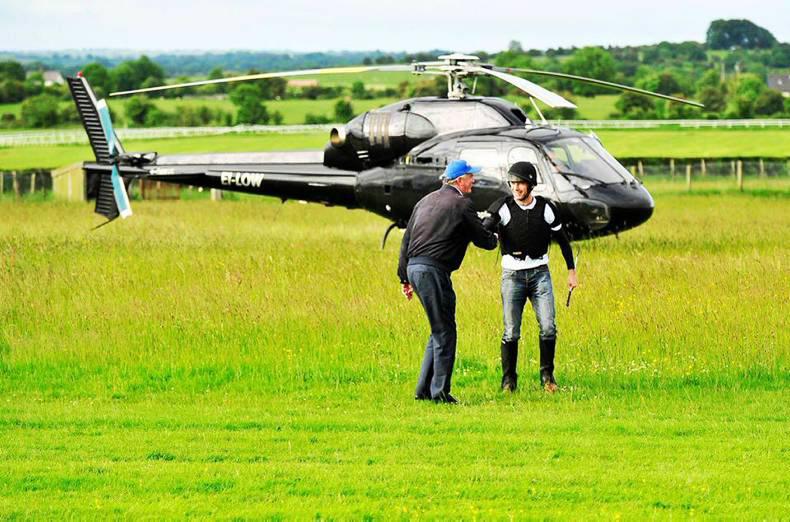DUNDALK Stadium will host Ireland’s first official barrier trials for unraced horses on May 2nd and 6th.
The initiative is the brainchild of Irish Thoroughbred Marketing [ITM], in conjunction with Dundalk Stadium, backed by Horse Racing Ireland and the Irish Horseracing Regulatory Board.
Barrier trials are part and parcel of racing in other jurisdictions and viewed as central to the education and preparation of horses, both raced and unraced.
ITM’s principal motivation for establishing trials is to meet the demand from overseas, especially from the lucrative Asian market, for unraced horses.
Currently many highly-rated Irish-trained horses with strong form are sold out of Irish stables to race in Hong Kong. The Hong Kong Jockey Club also buys yearlings here but Ireland remains relatively uncompetitive when it comes to providing unraced horses to that valuable sector.
Because of the lack of trials for unraced stock here, horses sourced from Australia and New Zealand dominate this market.
It is true that the model for racing in the southern hemisphere, where the majority of horses are trained and stabled on racetracks, make trials and jump-outs much easier to achieve, but the Dundalk initiative should allow Ireland to claim a bigger share of the market.
“Trials are a vital part of New Zealand racing,” says Simon Cooper, formerly a senior executive with New Zealand Thoroughbred Racing, now with Weatherbys in England. “They provide the shop window which makes NZ horses so successful in Australia and throughout Asia.”
The demand for unraced horses in Hong Kong has grown by 55% in the past year alone and the Hong Kong Jockey Club’s multi-billion dollar development of the Conghua racetrack over the border in China opens its doors in August.
Their horse population will continue to grow over the next few years and the majority of those horses will be unraced.
To satisfy this demand, the HKJC has for the first time broadened its search for new horses from South Africa to South America in recent months.
Each trial will be recorded and timed by the on-course broadcast team and placed online on a designated section of the ITM website. They will also be disseminated over social media. If a horse is for sale, bloodstock agents can alert foreign clients as to the performance.
Charles O’Neill, ITM chief executive, said: “We understand the concept is new and may take time to be accepted. It might also take time to work out how they should be run. A trial is akin to a schooling race using starting gates.
FINISH ON THE BRIDLE
“Ideally, the horses will break cleanly, travel within themselves and finish off on the bridle without being driven out. There are no prizes for breaking the track record. A trial over five furlongs in other parts of the world typically clocks in around three or four seconds slower than a standard race time. It is a piece of work that is showcased, nothing more.
“Our horses are admired and coveted far and wide. At a time when the number of foals born in Ireland is increasing, it makes sense to at least explore new angles for selling some of this stock.
“So we invite entries to take part in barrier trials either through email or phone.”
“There will only be 12 slots across two trials before racing per meeting and it will be first come, first served.
“Depending on demand, there may only be room for one horse per trainer per meeting, but let’s see what the response from the racing community is like first.”
BARRIER TRIALS EXPLAINED
• It is planned that barrier trials will take place before racing at Dundalk on May 2nd and 6th.
• Barrier trials are mock races with horses beginning from starting stalls as they would in official races. The trials are to serve as education and race practice for horses, being especially valuable for unraced horses.
• There is no onus or incentive to achieve a best possible placing in a trial. A finishing position by a horse in a trial is of no material consequence. There is no prize money. It is just practice.
• Entries will be accepted for no more than six horses per trial and there will be just two trials before racing on the above dates.
• The horses entered must be unraced.
• The horses entered must be in the care of licensed trainers.
• The horses entered will be ridden by licensed jockeys under catchweights, ie. without weight restrictions, as is the practice overseas.
• The horses entered must have already obtained a starting stalls certificate from the IHRB.
• The trials will be restricted to two-year-old and three-year-old horses. The age groups will be kept separate.
• It is intended that the initial trials take place over five furlongs. Subsequent dates for trials may take place over six furlongs, depending on demand. These will be the only two distances over which trials are conducted.
• The first trial will start 90 minutes sharp before the first officially programmed race with the second trial 15 minutes later. It is the trainer’s responsibility to ensure their horse is tacked up and ready to leave the parade ring to go to the start at the appropriate time.
• Participation in a trial will cost €100, payable to Dundalk.
• Passports must be lodged with IHRB staff for all horses that enter the racecourse property, and the vaccinations must be in order otherwise the horse will not be allowed enter the stableyard and will not be allowed take part in a trial.
• The IHRB have facilitated ITM in allowing these two barrier trials’ dates to proceed as planned. All horses, trainers and riders will be bound by IHRB rules.
• For inquiries/entries contact barriertrials@itm.ie or call 087 112 1625.


 This is a subscriber-only article
This is a subscriber-only article
 It looks like you're browsing in private mode
It looks like you're browsing in private mode










SHARING OPTIONS: